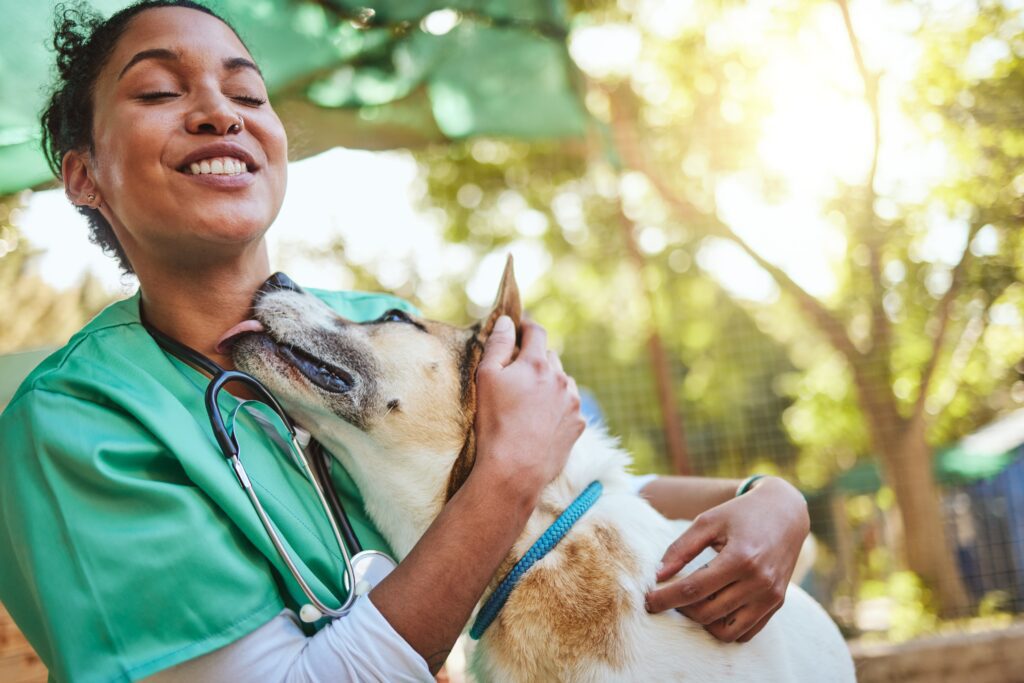Independence Day is thoroughly relished by a majority of Americans, however there is a small fraction of the population that dread this boisterous holiday. Pet owners have always struggled with their pets’ firework anxiety. In some cases the anxiety is so severe that a pet will injure themselves or others. Shelters are flooded with calls of runaway dogs during thunderstorms and fireworks. In fact, more dogs runaway on July 4th than any other day of the year. So why does this happen and how can we help our furry friends?
Many dogs and some cats can’t cope with the phobia of thunderstorms and fireworks. One explanation for this is that their senses are often much better than a humans therefore they experience these sounds and smells at a much greater level. Many animals will run from a loud sound especially if that sound is unexpected like a firework explosion, it is instinctual to avoid loud noises as they can be associated with danger.
There are a few approaches you can take to ease your animal’s fear. One thing that is recommended is to acknowledge your pet’s distress, but not overly comfort them, as that may further instill the phobia. If you must, offer a crate with a blanket covering the top to allow for a cave-like sanctuary for your dog to wait out the noises. This allows the dog to do what he/she may do in the wild during severe storms, however this does not address the problem or anxiety.
A “thundershirt” has proven to be effective in mild cases of anxiety, however in extreme cases it appears to have little to no positive results. Some have found results in training their dog to run on a treadmill during storms and some go jogging during fireworks. This tactic in theory is to aid a dog’s mind in moving forward and away from fear in these instances, however this can also further traumatized an animal by forcing them into the situation. There are homeopathic remedies some swear by, however they are not effective with every case. As far as treatment goes, different dogs respond to different methods. If needed contact a local behaviorist to pinpoint the exact problem and work with you to formulate a plan.
The last resort should be sedation. If all else fails, consult your veterinarian about possible medications. A new medication, “Sileo” is being developed and unfortunately is years away from approval by the FDA. Success rates are very high in the clinical trials for this medication, though we don’t expect it on the market anytime soon. As always medication should be considered last after all other options have been exhausted.
Each pet should be considered individually and an owner must understand not all methods work for all pets. An owner must be understanding and help their cat/dog cope with this all too common noise phobia. Offer relief where you can and try to address the problem directly if possible. These tips should help you and your pet enjoy a happy and safe Holiday.




